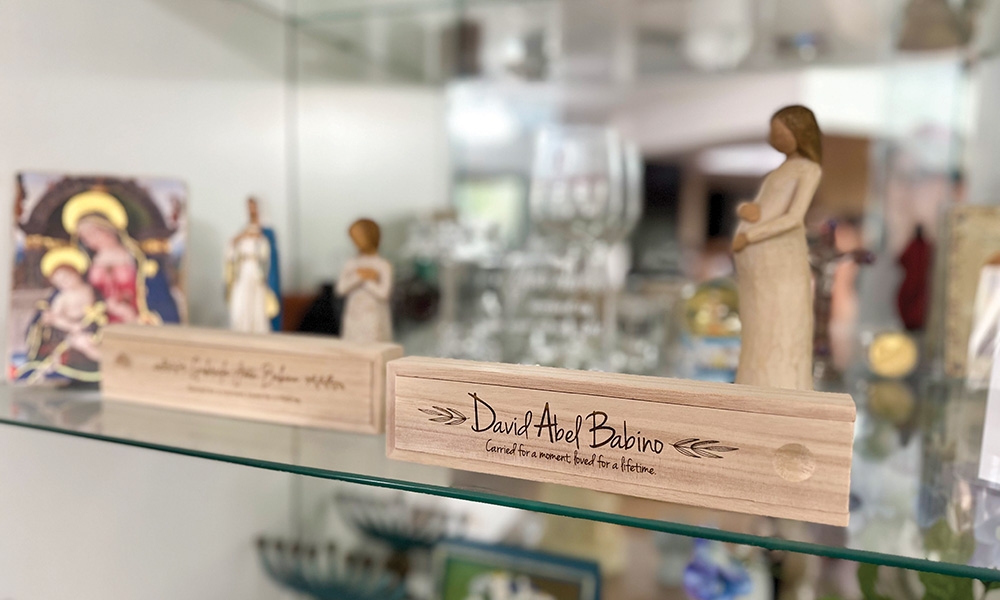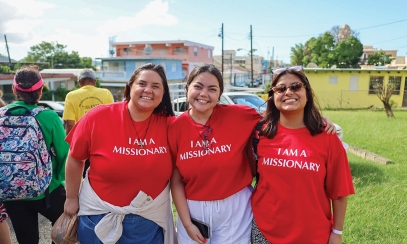
When Grief Meets Grace: The Gift of Life, Even in Loss
At my eight-week ultrasound in March, I watched the monitor while the sonographer scanned my belly. What I saw on the screen didn't look right, and neither did the sonographer's face.
Not again, I thought.
At my eight-week ultrasound in March, I watched the monitor while the sonographer scanned my belly. What I saw on the screen didn't look right, and neither did the sonographer's face.
Not again, I thought.
Four months prior, our first pregnancy ended in miscarriage so fast we didn’t even make it to the ultrasound appointment. But our second pregnancy was different. We hit the milestones we had missed with our first.
The Little Life Inside
In early pregnancy, you need hCG, the hormone pregnancy tests detect, to double every couple of days. In my first pregnancy, it dropped. In my second, it quadrupled.
I wasn’t pregnant long enough the first time for morning sickness to start. So the second time, I yearned for nausea, or for any sign of the little life inside of me. When morning sickness kicked in — and oh, how it kicked in — I shouted “Thank you, Jesus!” right into the toilet.
When we walked in for our eight-week appointment, the woman at the front desk asked how I felt.
“Nauseated,” I laughed.
All signs said we should have expected to see a raspberry-sized baby bouncing around in there, and to hear its heartbeat. But that isn’t what happened.
Another Miscarriage
My husband and I sat in silence after the ultrasound and waited for the midwife, who confirmed what my gut said during the scan. We had lost our second baby, and my body didn’t know it yet.
For three weeks, we waited for the miscarriage to happen naturally. The entire time, due to hormones, my morning sickness persisted, now intensified by grief. But in the midst of that, I learned something invaluable.
You don’t know the magnitude of comforting the afflicted until you are the afflicted. In our mourning during both losses, my husband and I experienced an outpouring of this kind of mercy.
We received tangible gifts — flowers, cards with kind notes, statues of an angel and of a pregnant mother. One came from a friend I haven’t seen in person in 20 years, who now lives in South Korea but whose heart was so moved to comfort mine that she shipped it with love from 7,500 miles away.
After our first loss, not long before last Christmas, my parents had an ornament engraved with our first baby’s name — Gabriela Joan — and a reminder: “Carried for a moment, loved for a lifetime.”
When the grief felt so heavy I didn’t want to do much other than watch movies in bed, one friend delivered me lunch and flowers.
Another texted a DoorDash gift card and covered a couple of dinners. Friends in Texas used Uber Eats to have two meals delivered to our door.
Intangible Gifts
There were intangible gifts, too, like lots of texts and a phone call from a friend while she mourned her own loss.
When we received the news both times, we drove immediately to the Catholic church nearest our house — St. Joan of Arc Parish in Spring Hill — where the pastor, Fr. Patrick Rebel, dropped everything and gave me the Sacrament of Anointing of the Sick in preparation for what my body would have to endure.
I received daily check-ins from Diane Hale, my fertility care practitioner from the St. Gianna Center in Gulfport, and easy and frequent access to Dr. Debra Gramlich, my doctor and an emeritus board member of the center.
My then-employer gave me bereavement leave both times. And when I heard from colleagues while I was out of the office, it wasn’t about work — it was to ask how I was doing.
When the contractions started around 1 a.m. on April 9, a friend who was wide awake in the middle of her day in Australia kept me company (and distracted) via text.
I didn’t know yet that this miscarriage would be far harder physically than the first. But when I realized that at around 8 a.m., I reached out for help from my husband and my parents, who rushed to the house. The worst had passed by 9 a.m., and my mom stuck around to keep us company.
The Greatest Act of Mercy
But one of the greatest ways I have been comforted in this affliction is in the moments our community actually calls the babies we lost “babies” or acknowledges them by name. We named our second, too: David Abel.
Doing this honors the truth that life begins at conception, when the sperm fertilizes the egg — not at implantation, not at hearing a heartbeat, not at birth.
It honors the sanctity of the lives, body and soul, God created using part of me and part of my husband — sanctity that doesn’t depend on how long I carried them, how big they got, or whether I got to meet them.
These and all the acts of mercy we received remind us of what is often obscured in the world around us:
It’s okay to name the babies you haven’t met, even if you never learned their genders.
It isn’t overkill to take time off from work or to let a friend have dinner delivered during a miscarriage—the babies and the grief are real.
And the babies we lost are worth the grief we feel.
Helpful Catholic resources for navigating miscarriage, grief, and healing:
Perinatal Comfort Care of Tampa
Website: www.comfortcaretampa.com
A ministry of Catholic Charities of the Diocese of Saint Petersburg for women and their families who suffer a miscarriage.
Red Bird Ministries
Website: www.redbird.love
Catholic grief support for individuals and couples who have experienced child loss from pregnancy through adulthood.
Heaven's Gain Ministries
Website: www.heavensgain.org
Offers miscarriage caskets, burial urns, and grief resources from a pro-life, Catholic perspective.
Catholic Miscarriage Support
Website: www.catholicmiscarriagesupport.com
Offers prayers, burial guidance, how to name your baby, and liturgical suggestions for Catholic families.
Pope Paul VI Institute for the Study of Human Reproduction
Website: www.saintpaulvi.com
Specializes in natural reproductive care, miscarriage prevention, and NaproTECHNOLOGY.

